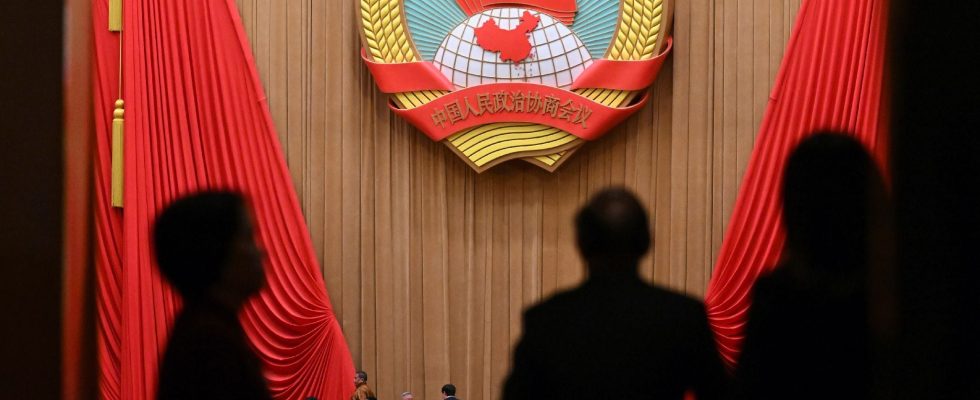In Beijing, it is the biggest political meeting of the year. Some 3,000 delegates from all over China will participate in the “Two Sessions” – the meeting of the Parliament itself and that of the consultative assembly – which will open this Tuesday, March 5 in the People’s Hall along Tiananmen Square . The opening ceremony took place this Monday.
Security and surveillance have been reinforced on the streets of the capital. For good reason, the 2024 edition is very special for Beijing. Not only because it is the first to take place “normally” since the start of the health crisis at the end of 2019 in China. But also because the economic context is particularly gloomy this year.
After three years of health measures and anti-Covid restrictions, the Chinese recovery came up against an unprecedented real estate crisis, sluggish consumption and a lack of business confidence. Consequence: at the beginning of January, China announced a 5.2% increase in its economic growth in 2023, the lowest rate in three decades excluding the Covid-19 period.
The economy will therefore be at the heart of these parliamentary sessions. In this sense, the Prime Minister designated a year ago by Xi Jinping, Li Qiang, will present his activity report and his GDP growth objectives. The latter could be set at 5%, according to data from the People’s Bank of China relayed by Reuters, “if investments increase by 4%-5%, consumption by 6%-7% and if exports recover”.
Retirement and youth employment
Despite this accumulation of conditions, Chinese leaders say they are “completely confident” in the long-term growth prospects of the world’s second largest economy, according to a spokesperson for the parliamentary session, Lou Qinjian.
Another spokesperson, Liu Jieyi, said one of the biggest “concerns” of the meeting was “youth employment.” The unemployment rate for this category officially stood at around 15% at the end of 2023, after adjustment by the National Bureau of Statistics of its calculation methods. Furthermore, China is expected to announce a further increase in its military budget, which has been on an upward trend for several decades, in line with economic growth.
According to China Business News, a postponement of the retirement age will also be on the table. “This year things seem to be becoming clearer and the retirement age of 65 could be the final adjustment,” we can read in the local newspaper. Currently, the legal retirement age in China is 60 for men, 55 for female managers and 50 for female workers.
However, the two parliamentary meetings, which will last until March 11, should not, a priori, lead to the announcement of large-scale economic recovery measures – the thousands of deputies of the National Popular Assembly (ANP) having limited power. All important decisions are in fact taken in advance, during closed meetings of the Chinese Communist Party (CCP).
“Common grounds” with the United States
China’s foreign policy will also be discussed during this parliamentary session, with an eye on the US presidential election in November. “Whoever is elected, we hope that they can work with China to find common ground and promote stable, healthy and lasting Sino-US relations,” Lou Qinjian said at a conference press release this Monday, March 4.
Sino-American relations have deteriorated in recent years, with the two powers at odds on many issues. Starting with links with Taiwan, trade, rivalry in new technologies, the South China Sea and even human rights.
Nevertheless, the two countries seem eager to resume dialogue. Last year, Washington sent several senior officials to Beijing, and a meeting was organized in California in November between US President Joe Biden and his Chinese counterpart.
